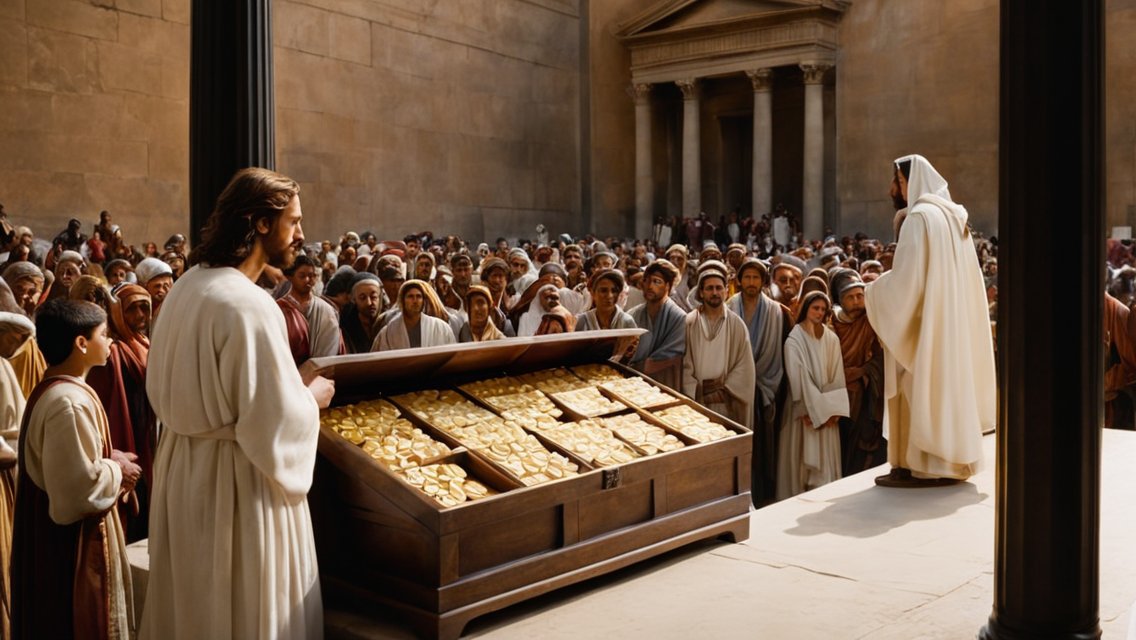Twenty-fifth Sunday Homily of the Ordinary Time – Year B
Readings: Wis 2:12, 17-20, Jas 3:16 – 4:3, Mk 9:30-37
1st Reading – Wisdom 2:12, 17-20
The wicked say:
12 Let us beset the just one, because he is obnoxious to us; he sets himself against our doings, reproaches us for transgressions of the law and charges us with violations of our training.
17 Let us see whether his words be true; let us find out what will happen to him.
18 For if the just one be the son of God, God will defend him and deliver him from the hand of his foes.
19 With revilement and torture let us put the just one to the test that we may have proof of his gentleness and try his patience.
20 Let us condemn him to a shameful death; for according to his own words, God will take care of him.
Responsorial Psalm – Psalms 54:3-4, 5, 6 AND 8
R. (6b) The Lord upholds my life.
3 O God, by your name save me,
and by your might defend my cause.
4 O God, hear my prayer;
hearken to the words of my mouth.
R. The Lord upholds my life.
5 For the haughty men have risen up against me,
the ruthless seek my life;
they set not God before their eyes.
R. The Lord upholds my life.
6 Behold, God is my helper;
the Lord sustains my life.
8 Freely will I offer you sacrifice;
I will praise your name, O LORD, for its goodness.
R. The Lord upholds my life.
2nd Reading – James 3:16-4:3
Beloved:
16 Where jealousy and selfish ambition exist, there is disorder and every foul practice.
17 But the wisdom from above is first of all pure, then peaceable, gentle, compliant, full of mercy and good fruits, without inconstancy or insincerity.
18 And the fruit of righteousness is sown in peace for those who cultivate peace.
1 Where do the wars and where do the conflicts among you come from? Is it not from your passions that make war within your members?
2 You covet but do not possess. You kill and envy but you cannot obtain; you fight and wage war. You do not possess because you do not ask.
3 You ask but do not receive, because you ask wrongly, to spend it on your passions.
Alleluia – CF. 2 Thessalonians 2:14
R. Alleluia, alleluia.
14 God has called us through the Gospel
to possess the glory of our Lord Jesus Christ.
R. Alleluia, alleluia.
Gospel – Mark 9:30-37
30 Jesus and his disciples left from there and began a journey through Galilee, but he did not wish anyone to know about it.
31 He was teaching his disciples and telling them, “The Son of Man is to be handed over to men and they will kill him, and three days after his death the Son of Man will rise.”
32 But they did not understand the saying, and they were afraid to question him.
33 They came to Capernaum and, once inside the house, he began to ask them, “What were you arguing about on the way?”
34 But they remained silent. They had been discussing among themselves on the way who was the greatest.
35 Then he sat down, called the Twelve, and said to them, “If anyone wishes to be first, he shall be the last of all and the servant of all.”
36 Taking a child, he placed it in their midst, and putting his arms around it, he said to them,
37 “Whoever receives one child such as this in my name, receives me; and whoever receives me, receives not me but the One who sent me.”
Moral Story for 25th Sunday Homily, Year B
The Humble Servant
In a bustling city, there lived a wealthy merchant who prided himself on his riches and success. One day, he encountered an old, poor man who quietly swept the streets every morning. Curious, the merchant asked, “Why do you serve others when you have so little?” Read . . .
Homily
‘I’ Disease & ‘Me’ Myopia
“If anyone want is be first, he must make himself
last of all and servant of all” (Isa)
A teacher was explaining grammar to her second-standard students. “Minnie,” said she, “Can you make a sentence beginning with ‘I’?” Minnie began confidently, “I is …” The teacher interrupted; “No. Minnie, always say ‘I am’!” Minnie continued, ‘Alright, miss, i am the ninth letter of the alphabet.” For kids, ‘I’ means many things, but, for most adults, ‘I’ always refers to ‘me’: the self. Hence, society today suffers from ‘l disease’ – an overpowering obsession with the self. That’s why Jesus challenges us to do three things: ( I) put ourselves last, (2) be the servant of all, (3) welcome the ‘least’ with limitless love.
Last week’s Gospel told us that no disciple – beginning with the foremost, Peter – was ready to accept a seemingly powerless, suffering Messiah. Today, when Jesus speaks about his passion and death again, we are told that the disciples “did not understand what he said and were afraid to ask him.” But, like any of us, today, they did understand that it pays to own property, hold posts and possess power.
The disciples’ debate must’ve been similar to that of officers gunning for top slots in some MNC: Will the Master choose Peter for his temperament? John, for his qualities of heart? Matthew for his mastery over money-matters? Judas Iscariot or Simon the zealot for their political prowess? Indeed, everybody wanted to be the greatest, the numero uno.
When Jesus asks his disciples, “What were you arguing about on the road?” the passage tells us, “They said nothing because they had been arguing which of them was the greatest.” Are they silent because they’re caught discussing something dissonant with Jesus’ teachings? We will never know. What we do know is that Jesus goes out, picks up a playful child and sets it in their midst.
Look at that child: bubbling with life and devoid of ego. In Jesus’ world, a child counted for naught. Children were meant to be seen, not heard. Jesus tells his disciples that their ambition should be to be as insignificant as a little child. Moreover, he exhorts them to care for little children and all the ‘least’ – for, in so doing, they would be caring for him, and welcoming God, his Father.
Today’s first reading from the Book of Wisdom describes the ‘virtuous man’ whose uprightness becomes a reproach for the ungodly. The psalm (54), with “The Lord upholds my life” refrain, is a fitting response of the righteous person who depends totally on God – not on the self – for help and protection. Just as the first reading describes the integrity of the righteous person, the second reading locates “wars and battles between yourselves” not in external enemies, but “in the desires fighting inside yourselves.”
Battles are fought, worldwide, because of the ‘I’, the Ego: be it in individuals or among nations. Former world heavyweight boxing champion, Muhammad Ali’s boast, “I’m the greatest!” echoes the disease of our times and stands in sharp contrast to Jesus’ exhortation: “You must be the last, the servant of all!” Are you ready for this?
Modern Man is myopic and cannot see beyond his own comforts and convenience. Men and women seem eternally engaged in making more money in a bid to beautify themselves and ensure a long life packed with pleasure. The focus is inevitably l, me, myself, for me, and so on.
A man once asked his little son, “Can you mention something of importance that did not exist twenty years ago?” Pat came the reply, “Me!” The (boy seemed to echo what he had inherited from his father and our society – a shortsightedness that begins and ends with “Me”.
Look again at Jesus and the little child he places in our midst. The journey from self-gratification to self-giving is difficult. But, it is the only antidote to ‘1 disease’ and ‘me myopia’, equipping us with a broader, deeper vision of Life. Like a child’s.





